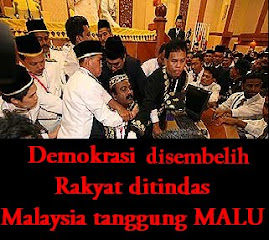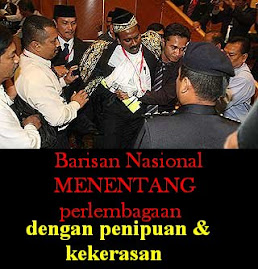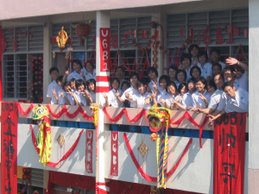Here is a more detailed insight on the new guidelines for investment industry which was announced by Datuk Seri Najib. The step to slash the equity quotas is followed by a set of new rules for publicly listed companies. Public share holding spread to bumiputera investors are now increased to 50% from the previously 12.5%. Read the below article for further information on many other changes on the policies.
Source:The Malaysian Insider
Najib slashes Bumiputera equity quotas, FIC role

Changes are here, Najib telling investors today. - Picture by Choo Choy May
KUALA LUMPUR, June 30 — Malaysia today made sweeping changes to its capital markets to boost foreign investments, cutting Bumiputera equity quotas for share offerings and in fund management firms while trimming the role of a powerful but conservative panel overseeing such investments.
Datuk Seri Najib Razak dropped the 30 per cent Bumiputera equity requirement for Malaysian firms seeking public listing, the cornerstone of the New Economic Policy (NEP), but they will now have to offer 50 per cent of the public shareholding spread to Bumiputera investors.
The public shareholding spread is currently 25 per cent which effectively sets the minimum allocation for bumiputeras at 12.5 per cent.
“The 30 per cent requirement remains but it is a macro objective,” the prime minister told reporters after announcing the changes while launching the InvestMalaysia week and meeting with senior fund managers.
He said the Bumiputera equity condition within the public spread will reinforce the competitiveness of Bursa Malaysia.
Najib also cut the powers of the Foreign Investments Committee (FIC), immediately repealing its guidelines covering the acquisition of equity stakes, mergers and takeovers.
The FIC will no longer process any share transactions nor impose equity conditions on such transactions — which has been its mainstay up to yesterday.
Najib also said FIC approval for property transactions will now only be required when it involves a dilution of Bumiputera or government interest for properties valued at RM20 million and above, while other transactions, including between foreigners and non-Bumiputeras, will not require approval.
“In addition, to further ease raising funds from the capital markets, post listing fund raising exercises will no longer be subject to any equity condition,” Najib said in his speech, adding this deregulation will immediately support existing listed companies seeking to raise funds and reduce the friction cost of compliance.
Najib, who is also Finance Minister, also liberalised ownership in the wholesale segment of the fund management industry, allowing total ownership for qualified and leading fund management companies seeking to be in Malaysia.
He also raised the limit for foreign shareholding in unit trust management firms to 70 per cent, from 49 per cent previously.
To boost the local markets, Najib has set up a private equity fund, called Ekuiti Nasional Berhad (Ekuinas), with an initial capital of RM500 million to invest in private sector funds, to promote genuine partnerships and a fully commercial approach.
He disclosed that Bumiputera participation through Ekuinas will be based on merit. The fund will eventually grow to RM10 billion.
“There should be no doubt that Malaysia welcomes foreign and local investors and participants. We can achieve high income by creating more opportunities for growth rather than protecting our narrow turf. We can only achieve our social equity goals by expanding the pie,” said Najib.
“A high income society must be socially inclusive. It must provide incentives to those who have a lot yet be fair to those who have a little. It must lead to high returns to companies and entrepreneurs who invest, better and higher incomes for those who are employed and greater capability for those who require assistance to help themselves or to get help from the government. Above all, a high income society must be one where every Malaysian feels they have a place and a promising future under the Malaysian sun.”
When asked about a possible backlash from the bumiputera community during the press conference, Najib later told reporters that he does not expect one. “It is a win-win situation,” he said.
“These moves are necessitated by two major factors – the economic environment has changed drastically and the FIC has not produced the desired results. Any new instruments for growth with equity must be more market friendly. The new policies will make our economy even more vibrant and put the country quite high up on the investor’s list.”

Yakcop in a press conference today. - Picture by Choo Choy May
While there is no more equity condition imposed by the FIC, there could still equity restrictions from sector regulators such as Bank Negara, the Energy Commission and the Commercial Vehicles Licensing Board.
While there is the condition that half of the public shareholding spread be allocated to bumiputeras via balloting, the condition will be waived if there are no bumiputeras willing or able to take up the allocation.
Najib added that the FIC can be considered retired and a new unit will be created under the Economic Planning Unit (EPU) to monitor bumiputera participation in the economy as well as property transactions valued above RM20 million that involve dilution of bumiputera equity.
“You can say that the FIC no longer exists and a new unit created by (minister in the prime minister’s department) Tan Sri Nor Yackop will be created to replace it in the EPU,” he told reporters.
More details on the new private equity fund, Ekuinas, which is designed to boost bumiputera participation in the economy are expected to be announced later. But for now, the government has revealed that the initial funds will come from the budget and it will report to the prime minister with the EPU having a supervisory role.
It will be run by professionals and not civil servants but owned by the government. It will focus on nurturing bumiputera businessmen in sectors considered to be high growth such as education, tourism, oil and gas and ICT.
“We still have a number of instruments to help bumiputeras such as PNB (Permodalan Nasional Berhad), Mavcap (Malaysia Venture Capital Management Berhad), scholarships and training,” said minister in the prime minister’s department Tan Sri Nor Mohamed Yakcop in a briefing to reporters. “What we are doing is removing the hindrances to investors. Local and foreign investors hesitate to come in because of the FIC. With higher growth, bumiputeras will also benefit.”
He also said that the FIC is a “blunt tool” for wealth distribution and noted that RM52 out of RM54 billion in shares allocated for bumiputeras between 1984 and 2005 have been “sold quickly.”
Figures provided by the government puts the bumiputera equity figure at about 19 per cent currently.
Nor Mohamed added that he thinks the new measures will make the country investor friendly and competitive overnight and that investment in the country will increase by “leaps and bounds”.
Foreign fund manager Shireen Muhiudeen of Corston-Smith Asset Management says that the announcements are a “step in the right direction.”
She approved of the elimination of the bumiputera quota when raising new capital and the higher ceiling for foreign ownership in stock broking companies saying that it may increase competition and help bring down loading charges.
She however wanted the government to provide more details on the impact of sector regulation on investors.
Head of research at OSK Research, Chris Eng says that the changes will have help market sentiment and attract new listings to Malaysia but does not see any immediate impact.
“Big companies have no problem getting bumiputera investors anyway when raising new funds,” he points out.
He expects the main beneficiaries of the new policies to be investment banks as there would be less regulation for them to deal with.
He also sees the property sector benefitting from foreign investment in the long term but not in the short term as he forecasts a property glut to happen around 2012.
In other announcements, government linked companies (GLCs), will have to focus on core activities and dispose of non-core activities and not compete in areas best left to entrepreneurs.
They will also be required to compete on a level playing field with the private sector.
“There is no issue of the government providing assistance to GLCs by virtue of its shareholding to the detriment of private sector competition,” said Najib.
The lifting of the 30 per cent quota on new public listings is effective immediately and will affect companies currently applying to list.















